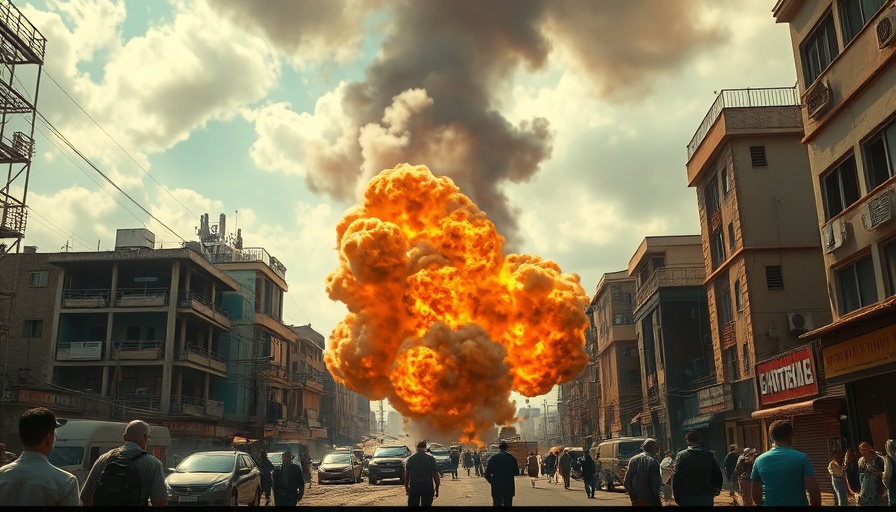
Historic Roots of the Gaza Conflict
The conflict between Hamas and Israel isn’t just a recent issue; it’s rooted in decades of complex political and territorial disputes. To understand why a simple cease-fire hasn’t been possible, one must delve into the historical context that has shaped the perceptions and actions of both parties. The tensions date back to the early 20th century with the rise of nationalist movements, which has contributed to the deep-seated distrust that clouds any potential negotiations.
Current Developments in Peace Negotiations
As of now, after multiple rounds of mediation efforts, the latest round of cease-fire negotiations has stalled due to fundamental disagreements between Hamas and Israel. The insistence by Hamas on a permanent cease-fire illustrates its desire to maintain a foothold in a post-conflict Gaza, contrasting sharply with Israel's strategy of seeking only temporary cease-fires as it prioritizes military objectives aimed at neutralizing Hamas's threat. This persistent divide complicates the mediation efforts, as seen in the roles played by international actors like the U.S. and regional powers such as Egypt and Qatar.
What If Peace Was Potentially Achievable?
Imagine a future where a lasting peace agreement is sealed. The end of hostilities would mean significant changes for the lives of ordinary Palestinians and Israelis, who yearn for stability and safety. The human cost of ongoing conflict is profound, with countless civilian lives disrupted and devastated on both sides. A lasting peace could pave the way for rebuilding efforts, allowing communities to heal and prosper together.
Understanding the Stakes: Multiple Perspectives
Both sides view the issue through their own lenses. For Hamas, a permanent cease-fire symbolizes recognition and a power-sharing framework for governance. On the other hand, Israel sees any concession towards Hamas as a potential threat, leading to new military challenges. The divergent perspectives create a complex negotiation landscape that can feel insurmountable, underscoring the need for understanding and engagement from a broader community of stakeholders.
The Role of International Mediation
International mediators like the United States have a crucial role to play but often face challenges due to varying global opinions on the conflict. The continuous reshuffling of mediators illustrates the complexity and frustration surrounding resolution efforts. Each mediating party brings its own agendas and biases, affecting the trust between the involved parties and the feasibility of negotiations progressing. Engaging neutral parties could be beneficial, creating a space for honest dialogue without the overshadowing bias from heavyweights.
Building Trust in an Era of Distrust
Trust is essential for any meaningful negotiations to succeed. For years, both sides have exchanged hostilities and rhetoric, deeply entrenching their positions. Establishing small, community-level trust-building measures could open the door for larger negotiations, allowing for an atmosphere where cooperation is encouraged over conflict. This could involve joint humanitarian efforts and exchanges that emphasize common humanity, fostering goodwill and showing both sides the benefits of working together.
The Humanitarian Crisis: A Spotlight on Civilians
Amid the political maneuvers, the humanitarian crisis in Gaza grows increasingly severe. Civilians bear the brunt of the ongoing conflict, leading to urgent calls for international support to alleviate their suffering. Recognizing the human dimension of this crisis is crucial; both Hamas and Israel must consider the implications of their actions on ordinary lives. Global powers must address this humanitarian plight as a priority, influencing discussions that focus on peace.
Lessons From Past Negotiations
Looking back on previous attempts at peace, it becomes evident that lessons can be drawn. Previous cease-fires have occasionally led to breakthroughs in dialogue, only for resultant tensions to regain prominence. Analyzing what has worked—or failed—in the past could inform contemporary strategies, paving the way for more productive negotiations moving forward.
 Add Row
Add Row  Add
Add 




 Add Row
Add Row  Add
Add 

Write A Comment